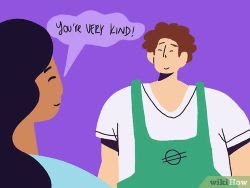Do you know why? Yes, the sentence "Sir, I am toilet." is NOT the correct expression to say when you are requesting or asking for permission to leave the classroom and go to the bathroom. Now, in order for us not to make a similar mistake when we are requesting permission, let's study the following expressions.
A. Using Modals: "Can I", "Could I", "May I":
| Using "Can I", "Could I", "May I" | Verb 1 |
|---|---|
| Can I Could I May I | go to the bathroom? use your car? close the door? |
| Giving permission | Refusing to give permission |
| Yes, you can. Sure, please do. Certainly, go ahead. Yes, of course No problem By all means. Yes, why not? | No, sorry. I’m sorry, you can’t. No, I’m afraid not .... I'm afraid you can't do that. You're now allowed to .... You should not .... |
B. Using "Would you mind ...?":
| Using "Would you mind if ...?" | subject + Verb 2 (Simple Past)? |
|---|---|
| Would you mind if | I went to the bathroom? I used your car? I closed the door? |
| Giving permission | Refusing to give permission |
| No, not at all. Certainly not. Please do. No, go ahead. | I'm sorry, you can't. Yes, I would. Certainly. |
C. Using "Do you mind ...?":
| Using "Do you mind if ...?" | subject + Verb 1 (Simple Present)? |
|---|---|
| Do you mind if | I open the window? I leave now? I close the door? |
| Giving permission | Refusing to give permission |
| No, I don't. No, not at all. Certainly not. Please do. No, go ahead. | I'm sorry, you can't. Yes, I do. Certainly. |
D. Using Other forms:
| Using "wonder" | subject + could + Verb 1 (Simple Past)? |
|---|---|
| I wonder if | I could borrow your dictionary. I could use your car. |
| Giving permission | Refusing to give permission |
| Yes, certainly. Please do. Why not? Go ahead. | I'm sorry, you can't. I'm sorry, but I'm still using it. |
E. Making Preventions:
| Making Preventions |
|---|
| I wouldn’t do that if I were you. I wouldn’t take the risk if I were in your shoes. It’s too risky. (I think) it’s not a good idea. |
| Responding to Preventions |
| Allright. I’ll consider that. I’ll think about that. I’ll think it over. I’ll reschedule my plan. Please do. Why not? Go ahead. |
F. Example Dialogues.
Short Dialogue 1
Man : Excuse me, could I try this shirt?Woman : Yes, please. There's a fitting room over there, near the counter.
Short Dialogue 2
Man : Do you mind if I use your computer to type this letter?Woman : No, not at all. Please do.
Short Dialogue 3
Woman : May I open the windows? It's very stuffy here.Man : I'm afraid you can't. The wind is very strong outside.
Short Dialogue 4
Man : Can I put my luggage here?Woman : That's okay, but please don't be too long.
Write short dialogues like the above examples about permissions based on the following situations.
- Your camera is out of battery. You want to borrow your friend's camera.
- It's getting late. You should leave your friend's house and go home.
- It's very windy and dusty outside. You want to close the windows.
- You forgot to bring your charger. You need to use your friend's phone charger.
- You want to turn on your television.
- You want to go to a movie with your best friends.
- You want to visit your friend at the hospital this afternoon. You ask for permission to your mother.
- You cannot use your motorcycle to come to your friend's party. You ask your best friend to lend you his motorcycle.
- Your pen suddenly runs out. You want to use your deskmate's pen but he is still using it.
- You want to go to the beach, but your parents do not allow you to go because the weather is bad.











